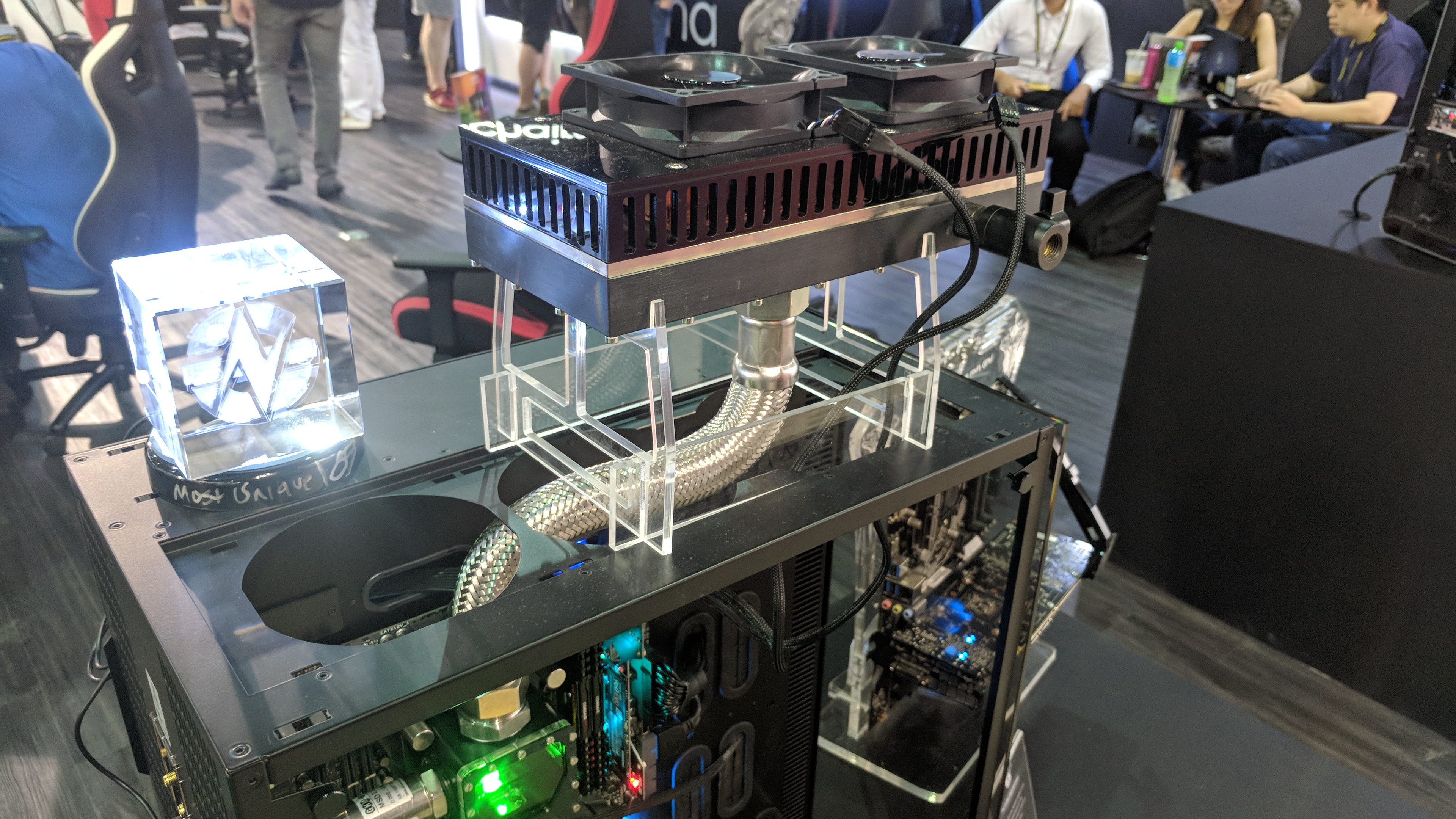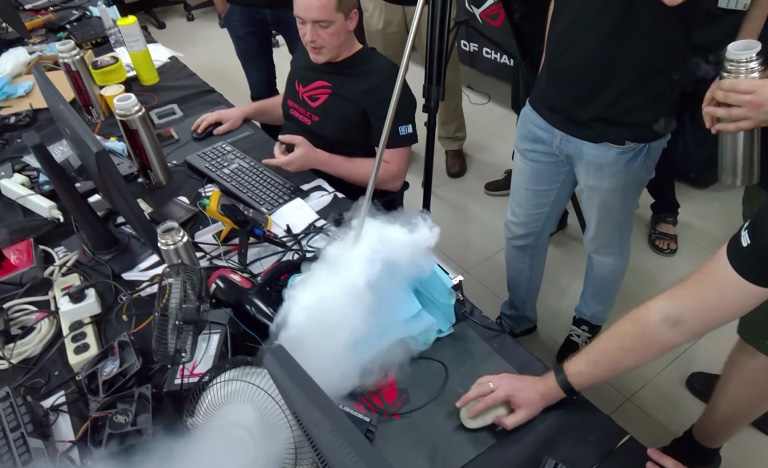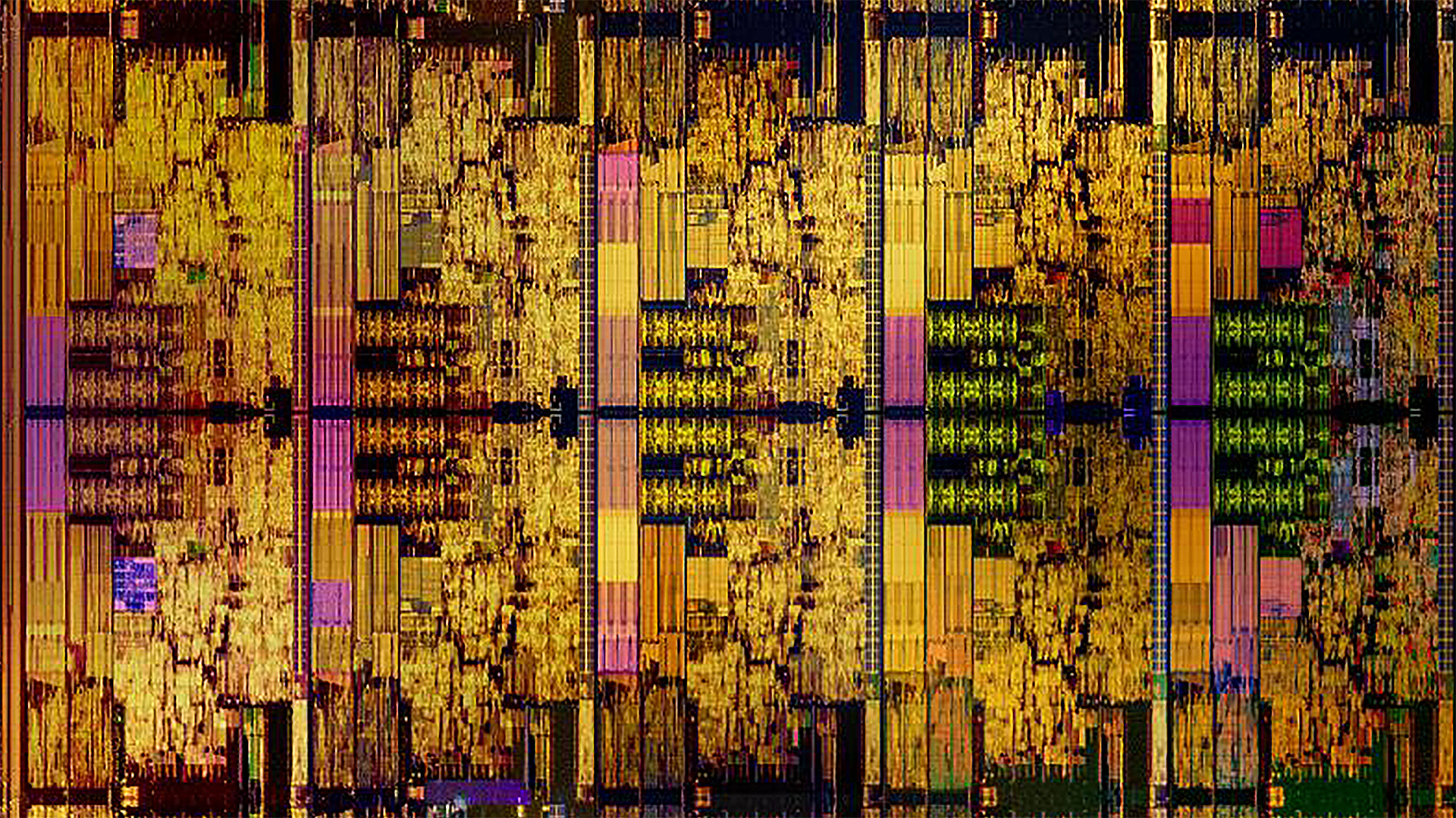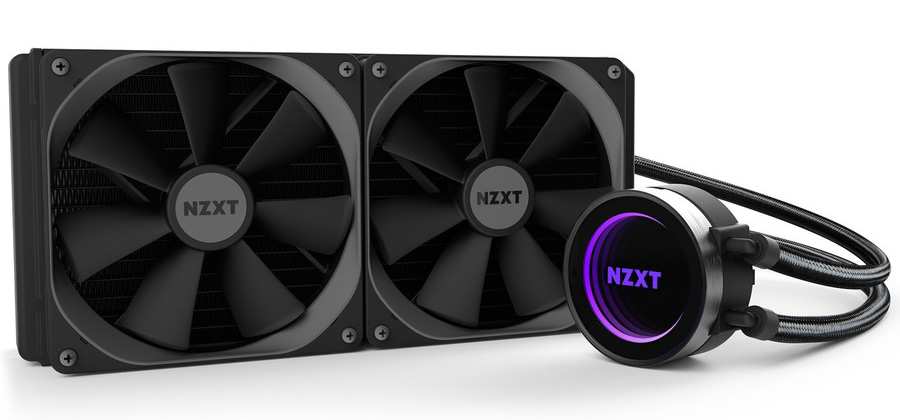Pro overclocker Der8auer on why the race to add CPU cores 'doesn't make any sense' and why you should still overclock
Also: why we need more CPU-demanding games, his favorite CPU coolers, and more.

At Computex 2018 I set some time aside to chat with Roman Hartung, a longtime member of the pro overclocking scene who has his hands in all sorts of hobbyist PC pies. Hartung, who goes by the handle Der8auer, works at Caseking.de, makes his own Youtube videos about delidding PCs, designed the delidding tool I used last year, and is currently designing his own liquid cooler.
We talked a whole lot about overclocking, what's exciting and disappointing in the CPU world right now, and some of his favorite PC hardware from the past and present.
Wes Fenlon, PC Gamer: I want to talk about overclocking. Where are we right now, versus the past two or three years? The base clocks of Intel CPUs have been going up a couple hundred MHz every year, and we now have 6-core CPUs in the standard i5/i7. What has that done for the average PC gamer who wants to overclock? Have we raised the floor, but has the ceiling stayed in the same place?
Roman "Der8auer" Hartung: From my personal point of view, the development actually doesn't make sense. It's very interesting. If you take a look at what's going on in the gaming industry, everything is shifting to GPU performance. Gamers want to play 4K, high resolution, best details, so we need a lot of GPU power. And then we have Nvidia basically locking down SLI. So we're limited on GPU performance, and we don't have the opportunity to, for example, use two, three, four GPUs to counter that.
We need higher speeds, more efficiency. We don't need more cores.
Der8auer
Then on the other side we have the CPU part, where we are getting a ridiculous amount of CPU cores that nobody needs. We just saw a demo of a 28-core Intel CPU, and I'm questioning, why do we need that? This race between Intel and AMD, the result is that we're seeing so many more CPU cores nobody needs. Of course there are a few people who are rendering, professional applications, but it's not much. I'd say maybe 1-2 percent are actually doing that. But the majority are gamers, they need high CPU speeds, say four or six cores. Eight is fine, but you're not going to have a benefit going from six to eight cores. No game really needs that.
So do you think more development effort should be focused on going towards higher clockspeeds on the number of cores we have now?
Yes, exactly. We need higher speeds, more efficiency. We don't need more cores. I know they probably don't want to hear that, but if you have a 7980XE with 18 cores in your rig, versus an 8700K, you will lose in every situation if you're a gamer.
Keep up to date with the most important stories and the best deals, as picked by the PC Gamer team.
Is there anything particular you'd like to see in a next-generation Intel CPU that is more complicated than just "make the clockspeed faster?" What are the complexities of performance efficiency that could have a real impact for gamers that goes beyond "it's just faster?"
What I would like to see on the desktop platforms is that they would make the CPUs a little bit bigger, in terms of having more pins, so we are able to have more PCI Express lanes, and still keep it as a desktop CPU. That brings me back to what I said earlier. We basically need more GPU power in the gaming industry. For that, most desktop CPUs have 16 or 20 PCI Express lanes. It's limited to the socket because we have a limited number of pins. We can't use Socket 1151 and get additional PCI Express lanes. It doesn't work. So I'd personally like to see CPUs with, say, 4-8 cores, clock speeds around 5GHz, but more PCI Express lanes.
Personally, I liked where it was going with Kaby Lake X. You had a bigger CPU, potentially you could have more PCI Express lanes, but it's still the same CPU as previously.
What's the average overclock you can get on the 6-core CPUs before you head into LN2 extreme overclocking? Like with the 8700K?
The 8700K is the perfect example. I'd say something between 50 and 75 percent can do 5GHz. I'd say 50 percent can really do it. Everything above is luck. A lot of CPUs can do 5.1, some can do 5.2. I've seen CPUs that can do 5.3, but that's the top, maybe, one percent, with watercooling. From that point on you need lower temperatures, which personally, doesn't really make much sense. Pushing your CPU to 5.3 or 5.5 takes a lot more effort, a lot more cooling, for just 200 MHz more which you probably won't notice.

I feel like the base clocks of these CPUs have gone up pretty substantially over the past five years or so, but 5GHz still feels like the overclocking goal. Maybe you can go a little beyond 5GHz, but that hasn't changed as dramatically as the floor has risen.
Yeah, that's correct. I'm not sure if we will ever reach a lot higher frequencies than what we can see now. There are some technical limits to it. Of course they can still fine-tune this, but I see a lot of people commenting "when can we have the 7GHz LN2 speeds on the daily rig?" I'm not sure if we'll ever see that. There are some limits of the switching speeds of the transistors, limits to voltages, thermals, and all that, so I think it's more a matter of staying at 4.5-5GHz, and then tuning your architecture for more efficiency. Being faster in other ways than just raw clockspeeds.
We know from the Pentium 4 times that it doesn't help to just ramp up the clockspeeds. You need an architecture that's more efficient, right?
Those were the days where it was like the megapixel races in cameras. "Well, it's more MHz, it has to be way better, right?"
What we see now is exactly the same, just in the core counts. What they do is increase core count, but it doesn't do anything.
It sounds like there's a lot you're not excited about in the high-end CPU space right now. Let's talk about what you do think is interesting and new right now.
There are a lot of things that I find really interesting, but unfortunately they have not been released yet. NDA stuff. But I can say, especially on the Intel side, by the end of the year, we'll see some very exciting stuff. I can't say much more without getting into trouble.
One thing you mentioned in your video about the Intel 8086K anniversary chip was some rumors were going around it was going to be soldered, and it wasn't. It seems like that's an ongoing topic about Intel CPUs, whether they'll be soldered or not. None of the i5s or i7s are soldered still, right? What do you think about that?
Let's say that's what I meant with exciting. You can draw your own conclusion.
Do you think overclocking has become less important, generally, for gamers?
No, absolutely not. That's one thing we see in the extreme overclocking community. People are always saying extreme overclocking is dying. Which is partially true—compared to 5, 6, 7 years ago, there were a lot of people who really enjoyed it as a hobby, just pushing it to the limits. But that's mainly because back then you could tune so much more yourself. When the CPUs weren't locked just by multiplier, when you could do b-clock overclocking, when you had to solder your motherboard.
Now things are so much easier. Your motherboard is so tuned. Ten years ago, if you overclocked your CPU without touching the voltages, you'd get ridiculous voltages, but nowadays everything is really safe. The vendors know what they're doing. So basically all you have to do is go to the BIOS, you increase the multiplier and the core voltage, and you're done. Everything else is done in the background and it goes really smooth.
It's a lot easier for the users, which makes it less interesting for hardcore enthusiasts. But for the typical gamer, I think a lot more people are overclocking now than five years ago. A lot more.

We need more games that really take advantage of it.
Absolutely. That's what I was talking about when I said everything is shifting towards GPU power while we were limited in GPU performance. We have a lot more CPU performance we're not using. I'd like to see software get more optimized toward higher core counts and stuff. Maybe we can take away some of the load from the GPUs.
What was your favorite CPU, expressly for the purposes of overclocking? What was the most fun, most challenging?
Personally I'm a big fan of very complicated platforms. The more complicated, the more fun they are to play with. So back in the day we had platforms like Intel Skulltrail, if you remember. Skulltrail was a platform with two Intel desktop CPUs forming basically a server for desktop. I really liked those dual socket solutions, because you could tune two CPUs. That was really exciting. Then we had AMD Phenom II CPUs. Those were a lot of fun as well to play with. I also liked the AMD FX 8350, for example. They were really hot, they were not that efficient, but you could clock them so high on liquid nitrogen. We could reach like 8000+ MHz which was very exciting.
Where do you feel like we are with overclocking the CPU and its relationship with other components? Like doing overclocking on memory, RAM, other components?
Always go for memory speed first. That's by far the higher priority.
Der8auer
Memory overclocking is really interesting as well. The thing is, it's a lot more complicated, because we have different IC manufacturers. We have Micron, Hynix, Samsung. It's a lot more complicated for the user to know what to do, because you have to overclock your memory based on what the IC is. The user cannot really find out what the IC is. Sometimes you can read it out on some sticks because it's programmed into the chip, but not on all of them. So it's a lot more complicated for the user to overclock their memory. I think that's why a lot more people aren't doing it.
Would you generally recommend lower timings vs. faster memory speed?
Always go for memory speed first. That's by far the higher priority. 4000MHz C19 is still a lot faster than 2400MHz C12 or whatever. Always go for higher frequency first, then try to lower the timings, decrease your voltage a little bit.
That's another thing: a lot of people are afraid of high voltages on the memory. There's this myth still from Gulftown, when people said that you cannot increase your memory voltage past 1.65V or it will kill your IMC. That's so wrong. You can ramp up your memory voltage to 2V. It does not kill your IMC. We do this on a daily basis and I've never seen an IMC die over this. We're even using like 2.2V on the memory for a very long time and it doesn't hurt the CPU.
Do you generally like to use G.Skill?
Yeah. What I love about G.Skill is that they always use Samsung, so you always know you'll get sticks that can clock very well. Because for example, Hynix is very limited in what you can overclock. G.Skill also know exactly what they're doing for the high performance sticks, so if you get a 4000 or 3300MHz stick, it can do it. They're very aware of how to bin their sticks.
What's the weirdest thing in PC hardware you can overclock right now? Can you overclock an SSD?
You can do that.
What does that get you?
Nothing! There are a lot of things you can do technically, but most of them don't really make sense, yeah.
Does M.2 vs. SATA have any impact on overclocking your system?
Actually we have a lot of trouble using M.2 drives. On Pinnacle Ridge, which is Ryzen 2, it has a negative impact. We saw that if we were running the Geekbench on a very highly overclocked system, and using the M.2 drive, we had a lot of stability issues. The CPU could not handle the M.2 drive. We never found out why, but using a SATA drive the system was a lot more stable. But this only applies to LN2 overclocking. We never saw this on [normal] overclocking.

What do you think about Skylake-X?
If you compare it with Broadwell-E, the previous one, Broadwell-E was consuming a lot less power, but only because we could not clock it as high. With Skylake-X we can go up to 5GHz on a very good chip, and considering we have 10-18 cores up to 5GHz, it's a huge step forward from Broadwell-E on clocks and performance, but also power consumption. You have a lot of headroom. If you're willing to play with it, you can get so much more out of it.
That's why personally I really like the Skylake-X platform. It's one of my favorite platforms, actually. You can tune it so hard and the performance is amazing. Even though a lot of people have been bashing this platform—me too, thinking of the VRM thing. You always have to differentiate between the CPU and the mainboard side. The mainboard side was not good enough when the CPUs were launched. But now everything is great, but the CPUs are awesome.
I know in competitions you use the Asus ROG motherboards a lot. Are they your go-to generally?
Generally, yeah. I've been very close with Asus so I'm probably a bit biased on that recommendation. But working with them on motherboards for 6-7 years, I can honestly say that they have an absolutely amazing engineering team. They do so much stuff that's absolutely unnecessary for the normal user. But from a technical point of view, it's amazing what kinds of features they're thinking about, what they're doing. They spend so much time and research on features that only a small number of people would actually use. That they still think about this makes me really happy.
What do you think are areas of improvement motherboard vendors could make that would make overclocking safer, easier, for the average person?
I heard that not only Asus, but also other vendors, are working on very good auto overclocking functions. They've improved a lot over 5-7 years ago, when they were really bad. Ridiculous voltages, unsafe clocks. But now they're trying to make overclocking easier for the user. You won't even have to watch tutorials in the future. We'll see features where it's really tuning the system automatically by itself, and you don't have to do anything anymore.
One thing I'd like to see is more uniformity in language, of how functions are described in the BIOS. They'll use slightly different phrases for the same thing.
That's a funny story. I'm not sure I'm actually allowed to say this, but I will anyway. I know on Asus's side, they have voltages in the BIOS, for example, with their own naming scheme. So they just come up with a name that's not necessarily technical, or doesn't really have a meaning, it's just a random name. Only they know what exactly it's doing, and they probably wouldn't even tell me what they're doing. It's a secret. They're doing research, they make a setting in the BIOS and want to be ahead of the competition. They don't want MSI, Gigabyte, ASRock, whoever, to copy their features, so they give them random names.
Which is really funny as a user in the BIOS, because you're like, "Hmm, this voltage is called, I don't know, termination voltage. Is it the same termination voltage as on an ASRock?" Probably not. Even if it's the same vendor, they can have different boards [with different terminology]. I wish it was more uniform, but I understand why it's not. They have to keep their development secret.
These days do you recommend doing most overclocking through Intel XTU or the BIOS?
I'd always do it through the BIOS. BIOS is the best software still, absolutely. You can always do A/B testing in the OS in XTU, for example, see how high you can clock, then adapt it to the BIOS. But in general it's easier to just lock it into your BIOS.

Do you have a favorite all-in-one liquid cooler?
Personally I really like the Kraken X62. It's not that expensive but the performance is really solid. It looks great as well. I'm not a guy who cares about looks too much, but the X62 has served me so well. I've used it over I don't know how many months and years. NZXT's AIOs always work great for me.
Wes: What about air coolers?
I'm a big fan of Noctua actually. I really like their attitude, the way they're working on things. Every year I see them at Computex showing new prototypes and stuff, and you can see that there's ongoing development and innovation, and what I like is that they only bring stuff to the market if it really works. I remember years ago they had this fan that was doing some kind of active noise cancellation, so they had magnets built into the rotor, and some inductor around the fan frame itself, so they could do the active noise cancellation just with the fan. They knew it was working, but they knew that it wasn't perfect, so they just didn't bring it to the market. They still needed to fine-tune it.
What's your go-to thermal paste right now?
I'm also going to be a bit biased on that, because I'm working really really close with Thermal Grizzly. That's also why I'm not publishing those tests anymore myself, because I think being involved in development on the manufacturer's side, I shouldn't judge others. Helping a lot at Thermal Grizzly, I can say it's very difficult now to find something that can really improve things. I think we're really on a technical limit now, on the thermal paste side.
What did you learn going from being the guy who tested 50 thermal pastes to actually being involved in the development process?
[The purpose of thermal paste is] that you have a thermal transfer between two surfaces that are actually quite flat, so you have to fill the gaps. You need different materials with different particle sizes, different particle shapes, even. You have a lot of different matrix materials, so the material that's basically keeping everything together, like a wax or a silicone oil.
There's a lot you can tune there. Then you have sometimes a thermal paste that sometimes in theory is absolutely great, the thermal conductivity is amazing, even if you do testing inside a theory testing device. And then if you apply it, it's worse. It's such a complicated topic.
Harder than you expected?
A lot harder.
Liquid metal is also quite complicated. I've been trying so many different alloys of liquid metal. There's some tuning you can do to it to make application easier, but then maybe you're sacrificing the thermal conductivity or it's hardening over time, which is a very interesting topic with liquid metals. It really depends on where you're applying it.
If you have a naked copper surface on the CPU waterblock for example, some of the parts of the liquid metal are building an alloy with the copper, and then it's hardening over time. Indium and tin, which are usually a part of the liquid metal, will form an alloy on top of the cooler. Which is not going to make performance worse, but it will lead the liquid metal to harden, so you have to reapply it after, let's say a year. So you can do some tuning to that as well, which also results in a lower thermal conductivity. I wouldn't expect any huge changes in the next years.
That's it for the interview, and we'd like to thank der8auer for his time and expertise. Check out his YouTube channel and follow him on Instagram if you want to see more of his extreme overclocking attempts.

Wes has been covering games and hardware for more than 10 years, first at tech sites like The Wirecutter and Tested before joining the PC Gamer team in 2014. Wes plays a little bit of everything, but he'll always jump at the chance to cover emulation and Japanese games.
When he's not obsessively optimizing and re-optimizing a tangle of conveyor belts in Satisfactory (it's really becoming a problem), he's probably playing a 20-year-old Final Fantasy or some opaque ASCII roguelike. With a focus on writing and editing features, he seeks out personal stories and in-depth histories from the corners of PC gaming and its niche communities. 50% pizza by volume (deep dish, to be specific).

